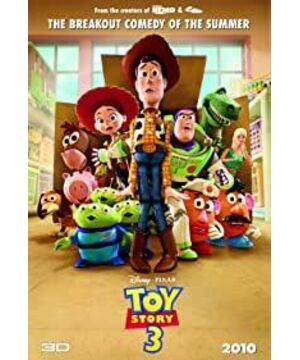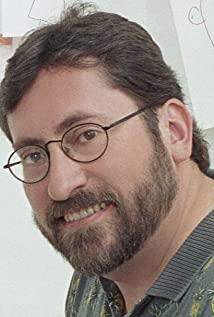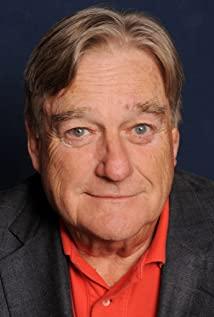Although it is for children, it is adults who soothe it.
In my opinion, playing three is a story about a person who "is no longer useful and no longer needed":
once needed and inseparable, but now the good times are no longer, do you
pray again for the other's love, or move forward?
Even though the outside world is terrible and fearful, there is no turning back in the world.
I am afraid I still have to go out. After all , I might meet someone who really needs you at this moment.
Who is comforting?
I think there are at least several types: divorced couples, dumped couples, empty-nest parents, and laid-off employees.
Especially the last one, under the tide of unemployment across the United States, I am afraid it is not my presumption.
Therefore, the ending of "Play Three" does not fall on "a misunderstanding, the misunderstanding is eliminated, and the master will take us home",
but reluctant to give up, there must be a handover, and each other leads to a different but beautiful life.
This kind of movie, I call it healing movie.
When I saw it, I felt soothed, embraced, and not "inspired" as if I was not beaten up. I also felt a little bit sorrowful,
but I also felt a little hope, a little satisfaction, and a light mind and body.
Even for cartoons, there is one point that fits the current public mood most closely.
There is also a word that has been used badly today: universal feelings.
I have the same feeling when I read "Seibei at Dusk" by Shuhei Fujisawa.
Obviously it is about samurai life in the shogunate era, but the reader community is the vast number of white-collar workers in Japan.
Why?
Fujisawa Shuhei’s novels are written about flawed, despised, and neglected little people
with worldly shortcomings, such as complaining, forgetting things, flattering flattery, filthy, poor...
But in fact they are all possessing special skills. Master.
Whenever you draw a knife, you must solve a current master.
But in life, they are still forbearing, humble little people.
The novel babbled a lot of life details, about the lives of these samurai.
What makes Fujisawa Shuhei's novels so powerful is that they have found the connection between the samurai theme and the current public sentiment.
In Japan, the class is strict, and the small staff are only committed, survive, and are under great pressure,
but deep down in everyone's heart, they feel that they are masters, just keeping a low profile.
This kind of story is just to comfort them.
However, Americans also write this kind of story. Small people are actually big heroes, such as "King of the Sea"?
The reason why "King of Sea Bian" is a Western story and not a healing movie is that it is too low.
The ending of "King of Sea Bian" is that Guinan really becomes a hero, stepping on a rocket and flying into space, and he flies out.
The hero has since been cut off from the men.
Fujisawa Zhouhei's awesomeness is that after his samurai took a shocking blow, they still be their own little people,
even the people around them don't know.
This kind of subtlety, this kind of return, this kind of thoroughness, is the ideal of the Easterners.
Whether our cartoons or martial arts films, have you ever carefully searched for the moving core of the genre story?
Have you ever studied the most fragile point in the hearts of movie audiences today, sincere comfort and careful massage?
As a result, our cartoons, adult audiences are completely accompanied by children, a mobile phone flashes on the seat, and
our martial arts blockbuster, the entire subject matter is ruined, and within a few years, I dare not touch it again.
The story is not the most important thing, the most important thing is always the hearts of the people.
View more about Toy Story 3 reviews











